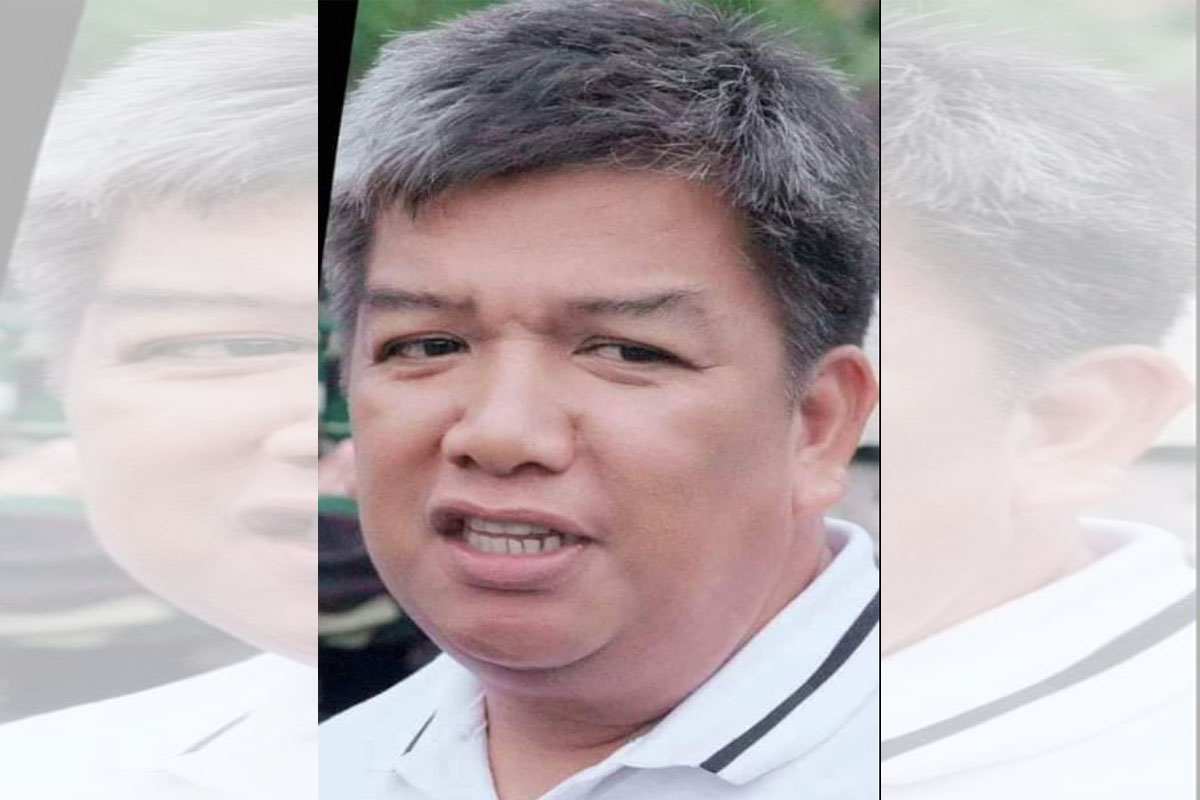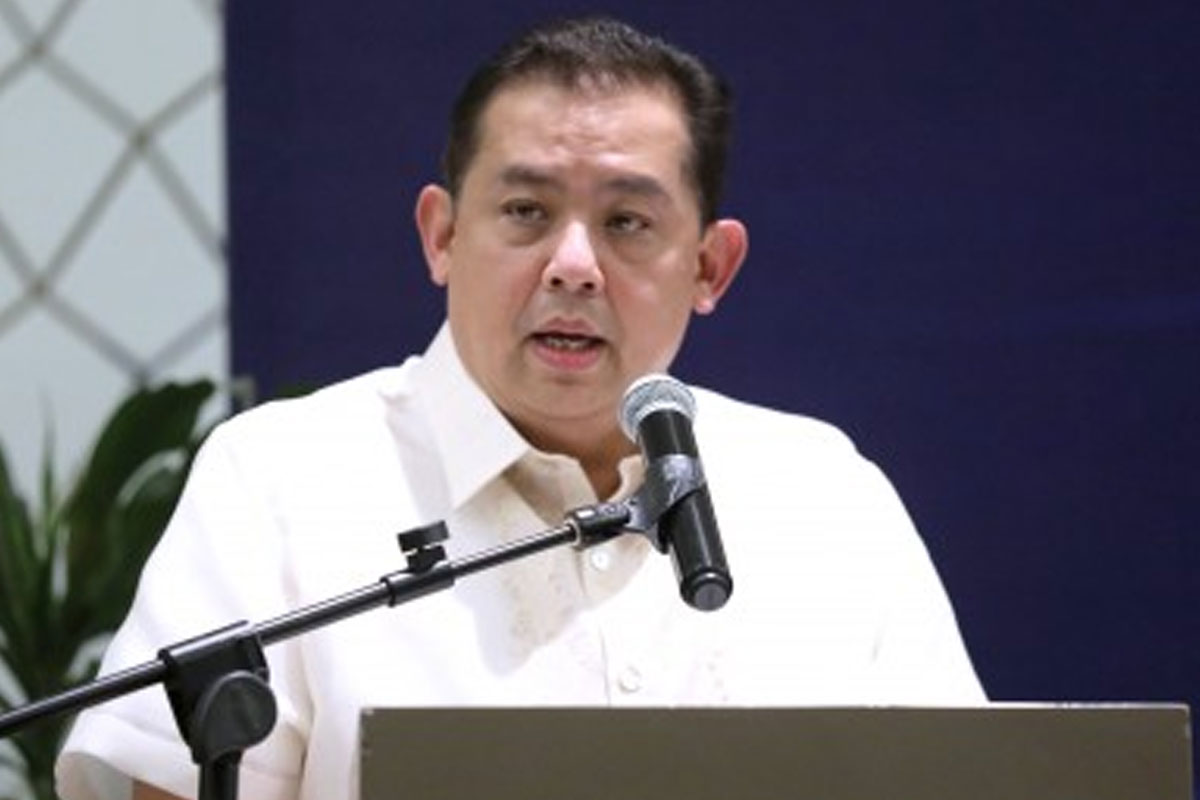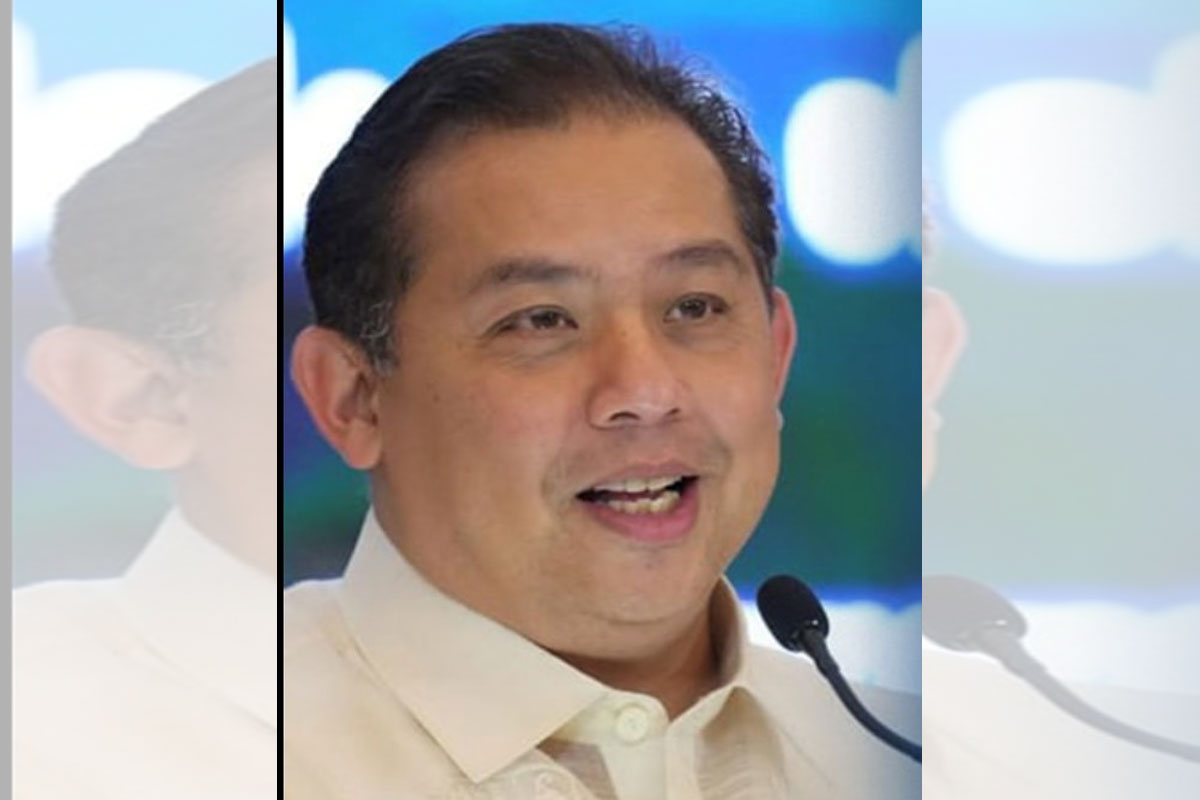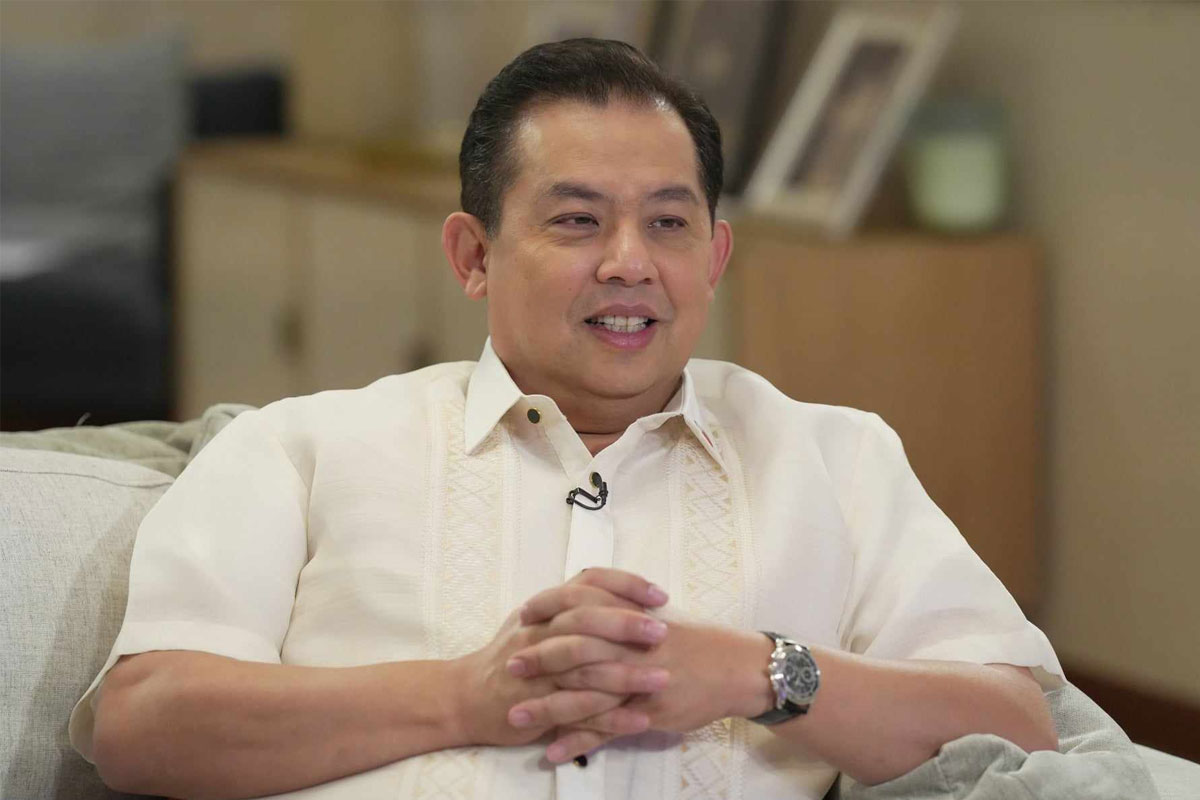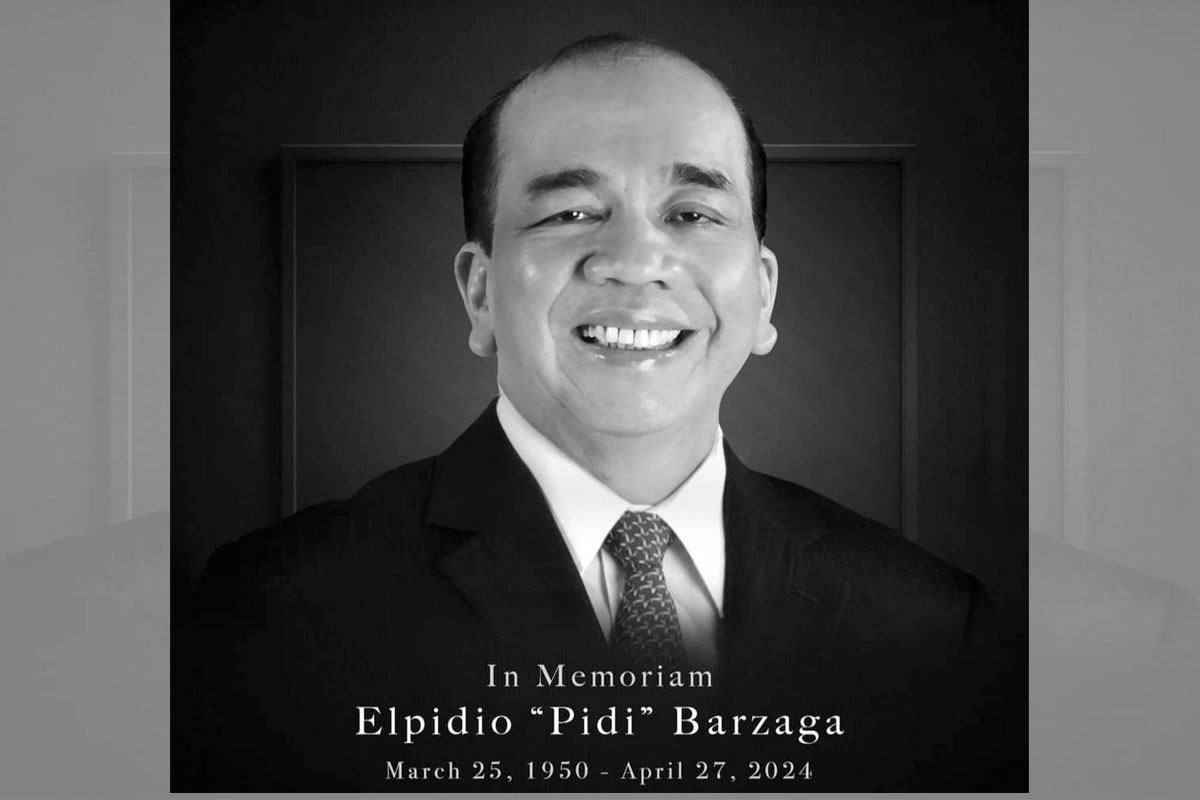
Pinoys rallied to support PBBM vs Chinese bullying in WPS
NATIONAL Unity Party (NUP) president LRay Villafuerte has rallied all Filipinos behind President Marcos’ relentless and aggressive push for a multilateral approach with like-minded country-allies on ensuring freedom of navigation and overflight in the Indo-Pacific region amid the increasingly provocative maritime incursions of Beijing into what are clearly part of Philippine seas in accordance with international law.
Villafuerte, an early advocate of the joint maritime patrols of the Philippines with the United States (US) and our other allies in the West Philippine Sea (WPS), said: “It is incumbent upon all Filipinos to support the Marcos administration’s policy on strongly asserting our sovereignty and jurisdiction over our EEZ (exclusive economic zone) as set under the 1982 UNCLOS (United Nations Convention on the Law of the Sea), and upheld by the PCA (Permanent Court of Arbitration) in The Hague in its 2016 Arbitral Ruling that junked China’s ostensibly historic claim to almost all of the South China Sea (SCS).”
“This is no longer a matter of whether one is a political supporter or not of the President and his Administration,” the CamSur congressman said. “Our territorial integrity is at stake and it thus behooves all of us Filipinos to support the government’s appropriate policy of defending our borders in accordance with international law and as upheld by the 2016 PCA Arbitral Ruling.”
“Such broad and deep public support is a must, more so now when a majority of our people clearly support this national defense stance and Mr. Marcos has secured broadening international support behind the establishment of a united front with like-minded countries to uphold freedom of navigation and overflight in the interest of peace and prosperity in the IndoPacific region and beyond,” Villafuerte added.
Villafuerte at the same time called on the Marcos administration to capitalize on its recent diplomatic coup in Washington with the forging of a Philippine defense and security alliance with the US and Japan, by lobbying for the speedy approval of the proposed five-year outlay of the Biden administration for the modernization of the Armed Forces of the Philippines (AFP), including the upgrade of the Philippine Cost Guard (PCG)’s capability to defend our seas.
The Bicolano legislator was referring to the measure seeking to authorize $500 million yearly in Foreign Military Financing (FMF) grant assistance to the Philippines between 2025 and 2029—0r a total of $2.5 billion over the five-year period.
President Marcos himself has noted that Manila’s response to the WPS conflict were “proportionate, deliberate, and reasonable in the face of the open, unabating, and illegal, coercive, aggressive, and dangerous attacks by agents of the China Coast Guard and the Chinese Maritime Militia. We seek no conflict with any nation, more so nations that purport and claim to be our friends, but we will not be cowed into silence, submission or subservience. Filipinos do not yield.”
Villafuerte said that as the President himself stressed following his April 12 meeting with US defense officials at the Pentagon in Washington, the Philippines “cannot afford to be complacent” despite the intensified defense and security relations with our allies, as “the intensity, and the potential disastrous consequences of the security threats facing us today necessitate that we work harder and continuously improve.”
For Villafuerte, Manila’s trilateral agreement with Washington and Tokyo plus its parallel military cooperation agreements with other allies like Australia and South Korea on the Marcos watch has improved prospects for peace and stability in the SCS in the long run.
Also, Villafuerte agreed with Speaker Martin Romualdez that the “strategic victory” achieved by the President with the Washington-Tokyo-Manila formal alliance on maintaining regional peace underlines the strength of the bilateral and multilateral partnerships that have been pursued by Mr. Marcos to address complex security challenges, against the backdrop of nonstop bullying by the Chinese Coast Guard (CCG) and Chinese Maritime Militia (CMM) of Filipino vessels and fisherfolk in the WPS.
Villafuerte said the President’s defense strategy to expand the joint patrols in the SCS with other allies, including those in Asia and Europe, is “the appropriate response to Beijing’s gaslighting ways, in which it has defended its provocative acts—including water-cannoning of, and intentional collisions with, Philippine boats—by accusing the Philippines of being the one “illegally trespassing” on Ayungin Shoal in the Spratlys, which the Chinese call Ren’ai Jiao of Nansha Islands.”
That the territorial dispute is likely to get worse before it gets better in the event that President Marcos backpedals on his current defense policy against China is underscored by the fact that the number of Chinese vessels monitored by the Philippine territory in our EEZ has now increased to 55 CCG and CMM ships from 45 vessels only a week ago.
According to the Chinese Embassy, the CCG and CMM actions against Filipino boats were its regulatory actions against the Philippines’ “maritime provocations” and serious violations of China’s territorial sovereignty and maritime rights and interests” in the waters of Ren’ai Jiao.
Just before the trilateral defense and security alliance was forged in Washington last weekend, the Philippines conducted on April 7 a multilateral maritime cooperative activity (MMCA) or joint patrol with the US, Japan and Australia within the Philippines’ EEZ.
According to AFP chief Gen. Romeo Brawner, a number of European countries have expressed interest in joining the MMCA in the WPS, but did not identify any of these allies.
“After seeing the successful multilateral MCA that we conducted, they reached out. They are willing (to join),” Brawner said.
White House National Security Communications Advisor John Kirby said in a briefing in Washington that more joint maritime patrols and exercises “about freedom of navigation” and “adherence to international law” will happen in the future.
The President flew to Washington a week ago for a three-day visit topped by his three-way summit with US President Joseph Biden and Japanese Prime Minister Fumio Kishida.
Villafuerte pointed out that the multilateral maritime activities have the support of most Filipinos, as shown in the results of separate public opinion polls.
In a Dec. 3-7 survey by Pulse Asia commissioned by the think tank Stratbase Institute, 55% of the 1,200 respondents believe the Marcos administration was capable of fulfilling its promise to protect the WPS against the illegal actions of other states.
About 79% of the same Pulse Asia respondents said they want the Marcos administration to work with the US on addressing the WPS tensions, 43% said they want the government to work with Australia and 42% said they want us to work with Japan.
As for a separate OCTA poll, 60% of its 1,200 respondents in its Dec. 10-14, 2023 survey agreed with the Marcos government’s response to Chinese actions in the WPS, higher than the 58% who said so in its October 2023 survey.
Earlier, Villafuerte shot down the Chinese offer for Beijing and Manila to reopen diplomatic talks on settling their territorial dispute, saying that “a nonpareil gaslighter like China has no place at the negotiating table amid its unceasing, increasingly provocative and dangerous bullying in Philippine seas in defiance of international law.”
Villafuerte said that judging from China’s insolent behavior in violation of Philippine sovereignty and our maritime rights right after every diplomatic talks between top Filipino and Chinese officials—including two engagements between Presidents Marcos and Xi Jinping—“there is no point for us to even think about the new proposal by the Chinese Ambassador for us to restart dialogue and consultation to settle our territorial differences.”
He said that any formal diplomatic negotiation between the Philippines and China on resolving the WPS conflict, as proposed by the Chinese Ambassador, will be a “fruitless activity,” considering that the Department of Foreign Affairs (DFA) itself has publicly acknowledged the “dissonance” between Beijing’s words and actions with regards to its avowed efforts to ease sea tensions within our EEZ.
“Any diplomatic negotiation has zero chance of reaching a peaceful settlement of the territorial dispute for so long as China keeps its gaslighting ways and insists on its legit claims over maritime zones that clearly belongs to the Philippines on the strength of UNCLOS, the 2016 PCA Arbitral Ruling and the rules-based global order,” he said.










